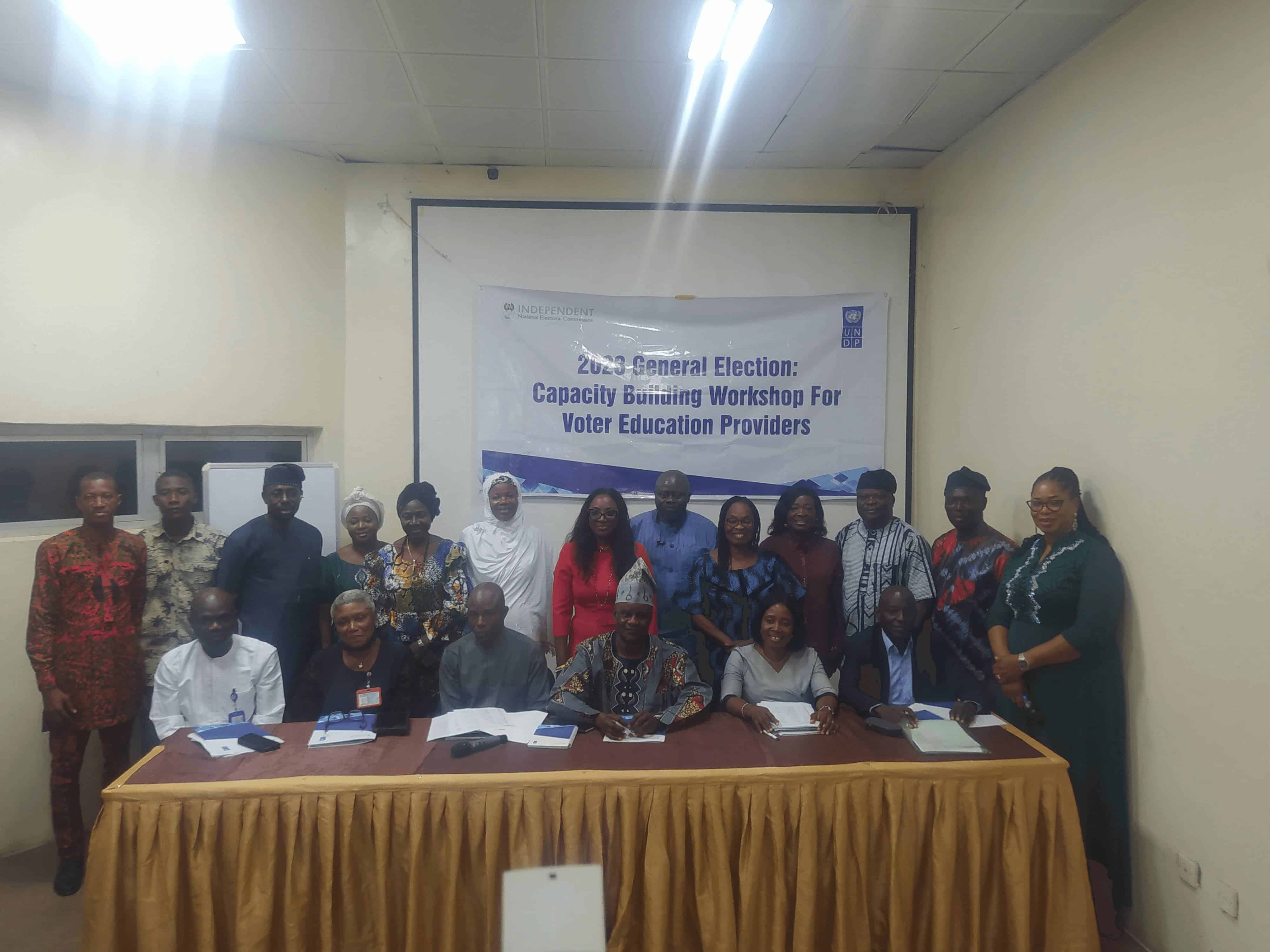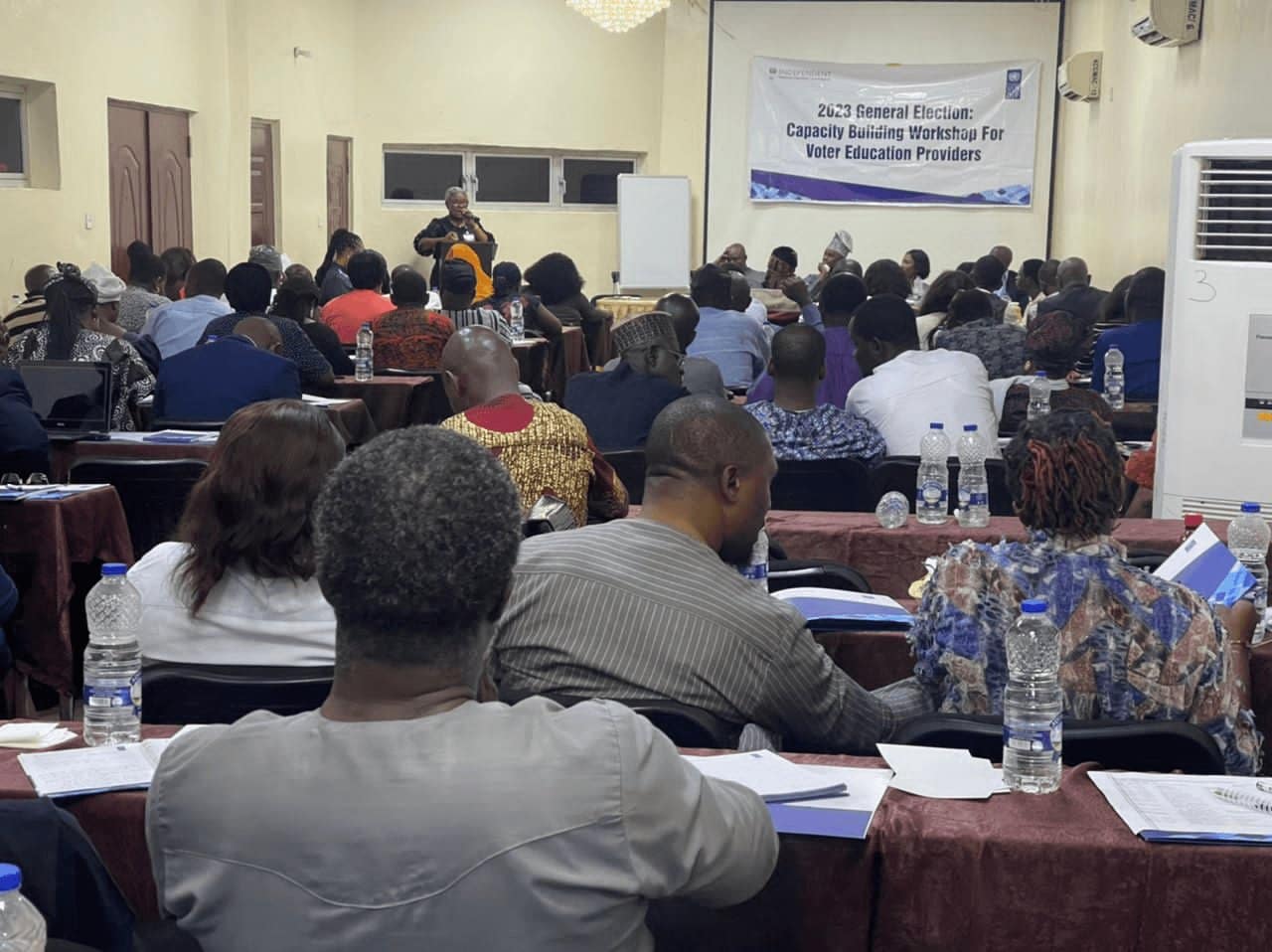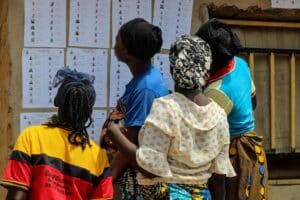2023 Elections: How Ready is INEC?
As the 2023 elections draw near in Nigeria, the Independent National Electoral Commission (INEC) in partnership with the United Nations Development Programme (UNDP) organised a Sensitisation Forum for Voters Education providers on Monday, 24th of October, 2022, at Kakanfo Inn and Conference Centre Ibadan. The Sensitisation Forum aimed at educating the public about the electioneering process and enlightening the Participants on the major technological advancements of the commission as well as the new legislation of the commission towards a free, fair, and credible election.

The event was well attended by various youth group leaders, leaders of religious sects and leaders of groups considered main stakeholders in the 2023 election as a result of the influence they have on young people. Onelife Initiative also had representation at the event. The basics of Voter Education were divided into the 5 W’s and the How;The “Who” are the people involved in the election? The electorates and the political aspirants as well as the political stakeholders. The “ What” refers to the things that the election is about. The “When” refers to the precise time the election would take place which is February 25 & March 1. The “Why” refers to the reason for the election. The reason for the election is for the electorate to exercise their constitutional rights. The “Where” refers to the places the elections would take place, and the “How” refers to the method by which the elections would take place.
There has been a track record of constant technological advancement by INEC in the electioneering process. In 2003, there was the introduction of the OMR (Optical Mark Recognition) for the elections which was an upgrade of the previous manual counting system. In 2007, the electronic voters register where laptops were used to capture data of voters was introduced. In 2011, the Temporary Voter Card was introduced, which had the voters photograph. In 2015, there was the introduction of the Permanent Voters Card which for the first time contained the voters’ photograph and other valid information which could be used for other purposes apart from voting and this also became a valid means of identification. In 2019, there was the advancement of the Permanent Voters Card with the introduction of the smart card reader where the voter will need to be accredited before they are allowed to vote. This served as a means of checkmate to prevent rigging during elections.
In 2023, there would be the introduction of the Bio Module Voters Accreditation System (BVAS) that would deter the advent of election malpractice and cases of ballot boxes being snatched. The BVAS would be used during accreditation to verify the voters by scanning the bar code or QR Code, the last 6 digits of the Voters Identification Number, or the last name of the voter. After doing this, it authenticates the voter and at the end of the poll, BVAS would upload the result into the INEC Result Viewing Portal.
It is evident that there has been significant improvement in the technological advancement of INEC, with the aim of further building the confidence of the electorates in the system. At the end of the session, there were many questions as regards the viability and competence of the BVAS, it was also asked how it would be in places where there is no network and it was explained by the officials that the System does not need Internet nor network to function, it only needs internet to upload the result which can be done at the end of the elections.
There will also be Registration Area Technical Support (RATECH) who will be deployed to assist in case the BVAS develops any fault whatsoever. It is bold to say that with the technological innovation of BVAS and the 2022 Electoral Act, the Independent National Electoral Commission (INEC) is adequately prepared for the 2023 elections if all things go according to plan. At the end of the session, there were recommendations by the participants to the Commission to motivate the youths to collect their Permanent Voters Cards by making the collection process easy and more accessible or consider using delivery agencies to deliver PVCs to individuals.




